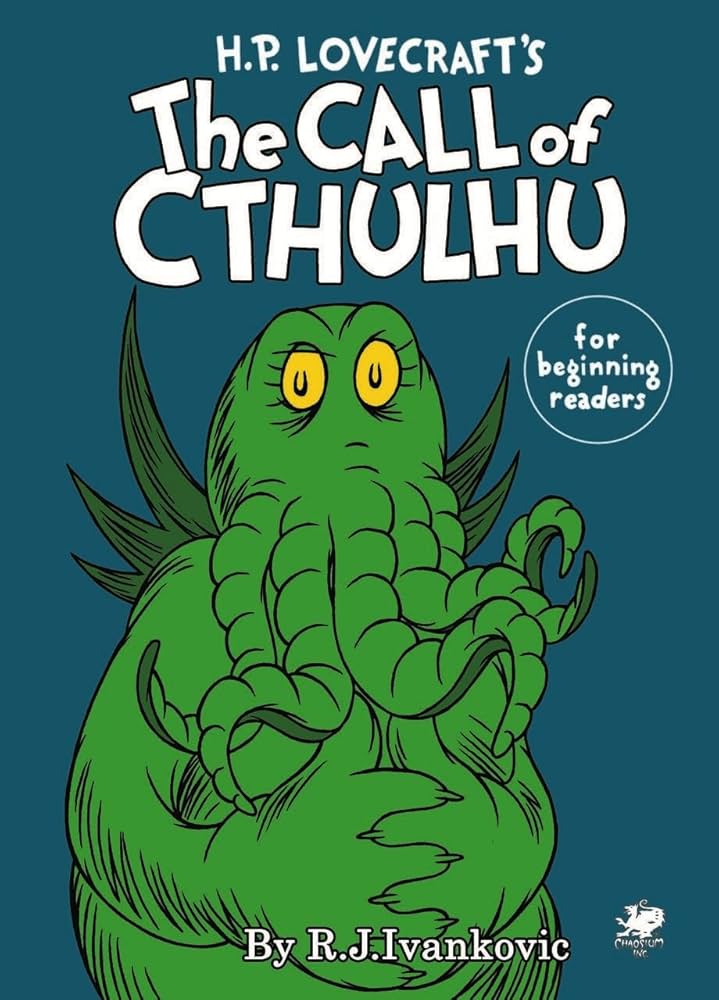As an avid tabletop RPG enthusiast I’ve enjoyed running various campaigns and oneshots over the years. Of course, there are always lessons to be learned from most sessions. However, one recent experience with my Call of Cthulhu campaign taught me more about teamwork and leadership than I ever expected.
The Game Begins
About a year ago our group, a tight-knit collection of friends, decided to embark on a Call of Cthulhu campaign. The game, known for its intense and often disturbing horror themes, seemed like an exciting challenge. something significantly different to the sprawling multi-year Dungeons & Dragons campaign I had been running. As the Game Master (GM), I was responsible for weaving a narrative that would keep everyone engaged and on the edge of their seats.
Initially, everything went smoothly. We had some incredible characters, backstories, and a dark, mysterious plot that promised endless thrills. I was excited to run “A Time to Harvest” a campaign designed for those new to Call of Cthulhu. Everything was set. However, what I didn’t anticipate was how the horror themes would affect each player differently.
A Surprising Revelation
While the campaign was moving along we had some amazing roleplaying, unsettling moments and that gradual decline of the characters that the game invokes. To my mind the campaign was going exactly as it was meant to. One morning, mid-campaign, one of our players messaged me privately. They confessed that the horror elements were not sitting well with them and that they were struggling to enjoy the sessions. This revelation came as a massive surprise. In my enthusiasm to create an immersive experience, I had overlooked the importance of checking in with my players to ensure everyone was comfortable with the content. this was particularly important given the horror themes explored in the game.
A Moment of Reevaluation
After the initial shock subsided I contacted the other players. This moment forced us as a group to reevaluate why we were playing. We realized that the core of our enjoyment came from playing together as a team, not necessarily from the specific themes of the game. It was very cleat that our primary goal was to have fun, build stories, and spend quality time together.
With this new understanding, we collectively decided to shift our campaign to something more suitable for everyone. The decision was unanimous and surprisingly easy to make. The group’s willingness to adapt and support each other made the outcome even sweeter. We transitioned to a different narrative, ensuring that all members were comfortable and engaged.
The Power of Regular Check-ins
Reflecting on this experience, I recognized a critical mistake I had made both as a leader and GM: I hadn’t conducted regular check-ins with my players. In the rush to progress the story, I neglected to pause and ask how everyone was feeling about the themes and direction of the game. This oversight highlighted the importance of regular feedback and communication, not just in gaming but in any team setting. I had written about this very subject in the past, but failed spectacularly to heed my own advice.
Lessons for Leadership
The parallels between running a roleplaying campaign and leading a team in the workforce are striking. In both scenarios, regular check-ins are crucial for maintaining a healthy, productive, and positive environment. This is something I do weekly with my direct team in my role of General Manager. Having a regular opportunity to catch up with your team and understand their needs is crucial. You can celebrate wins, discuss strategy and any issues in a timely manner. So it seems odd that I missed doing it at the gaming table. Here are a few key takeaways from my Call of Cthulhu experience:
- Prioritize Communication: Just as I should have checked in with my players, leaders should regularly communicate with their team members. This helps to identify any discomforts, misunderstandings, or issues early on.
- Adaptability is Key: Being willing to change course for the benefit of the group is essential. In our game, shifting the campaign’s theme ensured continued enjoyment. In the workplace, adapting strategies based on feedback can lead to higher employee satisfaction, engagement and productivity.
- Focus on Common Goals: Our group’s enjoyment stemmed from our camaraderie. Similarly, in a professional setting, understanding and focusing on shared goals can unify a team and drive collective success.
- Create a Safe Space for Feedback: Encouraging open and honest feedback without fear of reprisal is crucial. It allows team members to express their concerns and contribute to a more inclusive and supportive environment.
Final thoughts
This experience running a Call of Cthulhu campaign was a hard lesson in the importance of regular check-ins and adaptability in leadership. If we hadn’t adapted as a team, the group may not have survived! Whether you’re leading a group of adventurers through a fictional world or managing a team in the real world, the principles remain the same. Prioritize communication, be adaptable, focus on shared goals, and create a safe space for feedback. By doing so, you can ensure that everyone is comfortable, engaged, and working towards common success.



